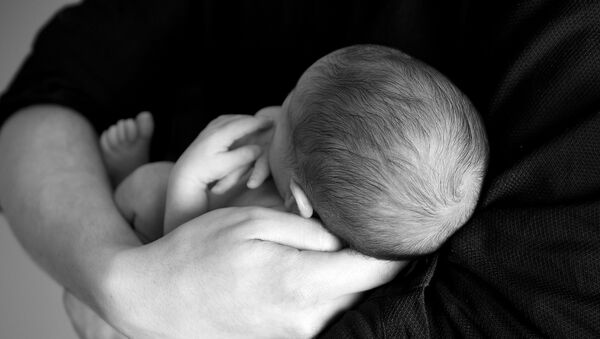The study from the University of Warwick looked at the behaviors of healthy infants in their first three months of life to determine their average qualities. They collected 28 studies from Australia, Canada, Europe, Japan and the United States, examining 8,690 infants in total.
"We've got, for example, weight charts, so parents and pediatricians can plot down how a baby grows and know if it's in the normal range — and that's quite reassuring for parents," said lead author and Warwick psychology professor Dieter Wolke. "But for crying, that didn't exist."
The study showed that average Canadian babies spent 2.5 hours a day crying, while the average baby overall spent just under two hours crying. Thirty-four percent of Canadian babies were "colicky," which here was defined as crying for more than three hours a day, more than two days out of the week. This compares to an 18-percent average across the entire sample.
"Having an idea of the normal crying times of babies in industrialized countries is a very good thing since it will reassure parents in good time and do the medically necessary if the children cry too much," said Wolke.
The study wasn't meant to rank countries by how annoying their babies were, but rather to determine what points of neonatal development saw the most crying. The research found that babies cry for about two hours a day during their first six weeks of life, a number that eventually decreases to an hour a day by week twelve.
The Netherlands came in second for crybabies, while the UK and Italy also had high rates of colicky infants. Danish and German babies were the most serene, a phenomenon Wolke attributes to a generous parental leave system, more social support for caregivers and an overall more relaxed attitude to parenting.
Importantly, Danes and Germans are also willing to let their infants cry for a few minutes before attending to them, giving them an opportunity to calm themselves. Brits and Canadians typically rush to calm their baby the moment it begins to cry, teaching them that crying is the fastest way to get what they want.
Wolke warns parents not to use their baby's crying as a measuring stick for the quality of their parenting. "It's quite normal in the first three months that some babies cry more than others," he said. "It doesn't tell you anything about whether you're a better parent or a worse parent."
As for despairing Canucks worried about having the world's most annoying babies, they can take solace in the fact that Canadian babies return to normal levels of fussiness when they're four weeks old.




